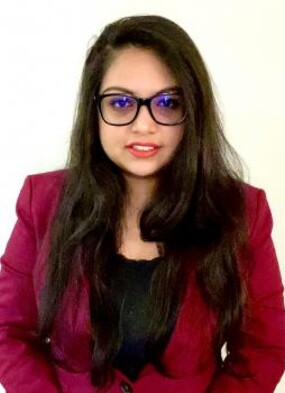Salwa Hoque is a Visiting Fellow at the Information Society Project in Yale Law School, and the inaugural Director of the Yale–Majority World Initiative. She is a Postdoctoral Research Fellow at Emory University, jointly appointed in the Department of English and the AIAI Network initiative.
Her current and forthcoming publications interrogate the racialized, gendered, and (neo)colonial logics that underpin data collection, classification, and the use of technology, revealing how databases and algorithmic design reflect dominant epistemologies and power relations. She is currently developing her first book – Automating (In)Justice: Law, Gender, and Neocolonial Digitality – which analyzes how AI systems encode norms, languages, and values stemming from modern legal frameworks that rely on patriarchal, racialized, and colonialist logics, resulting in harmful predictive decision-making that disproportionately harms women. By centering alternate moral orders and knowledge systems, she prompts a reimagining of algorithmic design and governance that is attentive to both the possibilities and the limits of AI.
Salwa has received several awards for her research, including first place in the NYU Research and Showcase Competition and the NYU University-Wide Outstanding Dissertation Award, a highly selective honor. She was awarded distinction by the School and delivered the commencement speech at the 2024 NYU Steinhardt Doctoral Convocation Ceremony. In parallel, her teaching and service have been formally recognized with NYU’s Outstanding Teaching Award and the Outstanding Service to the Department Award. In addition to university-wide honors, Salwa received the Joan Cahalin Robinson Prize from the Society for the History of Technology (SHOT) and the Best Graduate Student Paper Award from the Asian Journal of Law and Society (AJLS). Her methods cut across both the social sciences and the humanities, and she has received grants and fellowships from both areas, including from the Social Science Research Council (SSRC), the American Institute of Bangladesh Studies (AIBS), NYU Digital Humanities, and the Global Research Initiative.
She has taught courses and seminars across NYU and Emory University, including “Global Media and International Law,” “Law, Technology and Society,” “Theory of the Digital,” “Rise of Internet Media,” “Media Audience,” and “Introduction to Digital Humanities.”
Email: salwa.hoque@yale.edu
Selected Publications:
“Neocolonial Digitality: Analyzing Digital Legal Databases Using Legal Pluralism,” Asian Journal of Law and Society (2023), 1-34 https://doi.org/10.1017/als.2023.9
“Rethinking Marriage: Blurring the “Legal” and the “Social,” Law and Social Inquiry, (2025): 1-38. doi:10.1017/lsi.2025.10068
